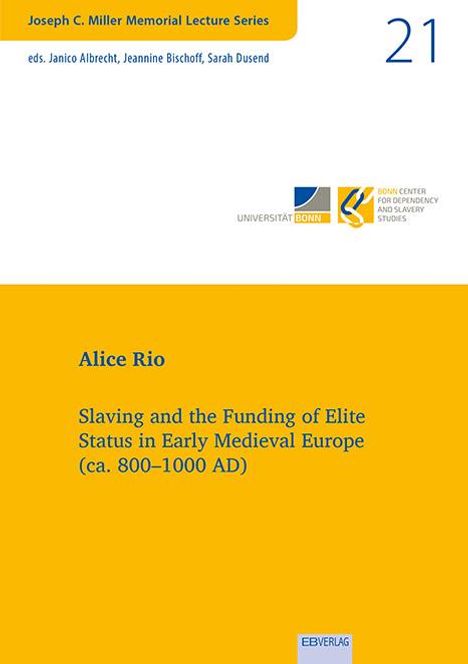Alice Rio: Slaving and the Funding of Elite Status in Early Medieval Europe (ca. 800-1000 AD)
Slaving and the Funding of Elite Status in Early Medieval Europe (ca. 800-1000 AD)
Buch
- EB-Verlag, 01/2024
- Einband: Kartoniert / Broschiert
- Sprache: Englisch
- ISBN-13: 9783868934656
- Artikelnummer: 11806690
- Umfang: 75 Seiten
- Sonstiges: 14,8
- Gewicht: 129 g
- Maße: 211 x 149 mm
- Stärke: 15 mm
- Erscheinungstermin: 15.1.2024
- Serie: JOSEPH C. MILLER MEMORIAL LECTURES SERIES - Band 21
Achtung: Artikel ist nicht in deutscher Sprache!
Klappentext
In the last few years research on early medieval slavery has seen an ever-growing emphasis placed on long-distance slave trading, and on the raiding practices that fed this trade. There has been relatively little link-up between this and older historiography looking at slavery in terms of labour and social history: the slaves who moved and the slaves who stayed have largely been kept in separate conversations. The increased profitability of slaving, though, should lead us to expect a rise in the internal importance of slavery as well as in slave-raiding and trading to external markets. This is what we find in many of the regions most intimately associated with the trade. There were, however, profound regional differences in the profiles and forms of engagement in slaving activities across Europe. I suggest that Joseph C. Miller's idea of slaving as a political strategy adopted by marginal players seeking to bypass normal forms of elite competition is helpful in thinking through the logic of these different responses to the opportunities and challenges presented by the slave trade: what motivated and constrained elite choices and possibilities? And what made slaving a more viable political strategy in some regions than in others?Anmerkungen:
Bitte beachten Sie, dass auch wir der Preisbindung unterliegen und kurzfristige Preiserhöhungen oder -senkungen an Sie weitergeben müssen.


